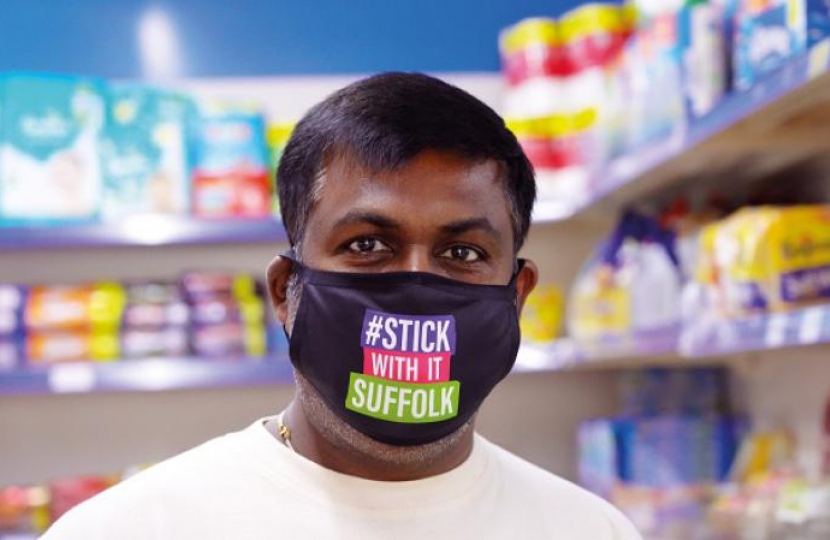
Suffolk’s current COVID infection rates, local hotspots and pressure on hospitals are among the reasons why the county will enter tier two local restrictions on Wednesday 2 December.
Following today’s decision by central Government to place Suffolk in the High Alert tier, public sector organisations in Suffolk have set out their goal to get the county out of local restrictions as quickly as possible. They have also moved to help residents, business owners and employees to understand the restrictions that will apply across the county, and the reasons for them.
Whilst Suffolk has so far seen comparatively lower levels of infection than elsewhere in the region and country, the current infection rate (85 cases per 100,000 people) is more than double what it was when Suffolk entered tier one on 14 October (35 cases per 100,000 people). At the beginning of September, there were just five cases per 100,000 people. Parts of Suffolk, especially in Ipswich and Hadleigh, are seeing much higher numbers of positive COVID cases than anticipated. This all puts pressure on Suffolk’s hospitals, which need to protect Suffolk’s vulnerable residents whilst still treating non-COVID patients. There were 116 COVID patients in Suffolk hospital beds as at 23 November.
Stuart Keeble, Suffolk’s director of public health, said:
“I fully understand that many people will be disappointed that Suffolk has not emerged from the national restrictions in a lower tier, or indeed no tier at all. I am too. Suffolk has done well at keeping our infection rates lower than many other areas in the country, and for that I would like to thank people for what they have done.
“The facts facing us today are clear however. With current infection rates and pressure being put on health services, we need to do more of what we have been doing. We need to stick with it.
“We know what we need to do to get Suffolk back on track. Every one of us needs to keep following the rules to stop the spread of COVID-19. We need to ensure our hospitals can continue to care for people who urgently need help, including those without COVID. We need to be responsible today for a better tomorrow.”
Rachel Kearton, Suffolk’s deputy chief constable and chair of the group of public sector organisations leading the fight against COVID-19 in the county, said:
“This week’s news about the success of COVID vaccine trials shows us clearly that there is light at the end of this tunnel, but there is still some way to go.
“Suffolk has been at the forefront of following Government guidance and it is precisely that which has kept infection rates relevantly low for so long.
“Now is not the time to give up and deviate from our course. Now is precisely the time to keep following the rules and stop the spread of COVID-19, so that we can get back to the social freedoms we miss so very much.”
From Wednesday 2 December 2020, people in Suffolk will be able to:
- Meet a maximum of six people from other households outdoors.
- Go to pubs and bars operating as restaurants with people from your household or support bubble, consuming alcohol but only with a substantial meal,
- Go shopping but whilst wearing a mask in indoor public spaces and respecting social distancing rules.
- Attend schools, college or university.
- Make use of early years childcare.
- Go to the gym or leisure centre, while following their guidance.
- Get a haircut or personal care treatments, while following their guidance.
- Stay overnight with their household or support bubble.
- Attend a wedding, civil partnership or wake of up to 15 guests or funerals of up to 30 mourners.
- Attend entertainment and sporting events, while following their guidance and capacity limits.
- Visit places of worship, whilst following their guidance.
- Take part in exercise classes or organised adult sport outdoors.
- Visit a loved one in a care or nursing home, if allowed locally and while following their guidance.
Until the position changes, we will not be able to:
- Meet people from other households or support bubbles indoors.
- Visit pubs and bars not serving food.
- Stay overnight with people from another household or support bubble.
- Exercise indoors with people from another household or support bubble if there is any interaction between them.
Everyone is encouraged to work from home and limit their journeys where possible.

